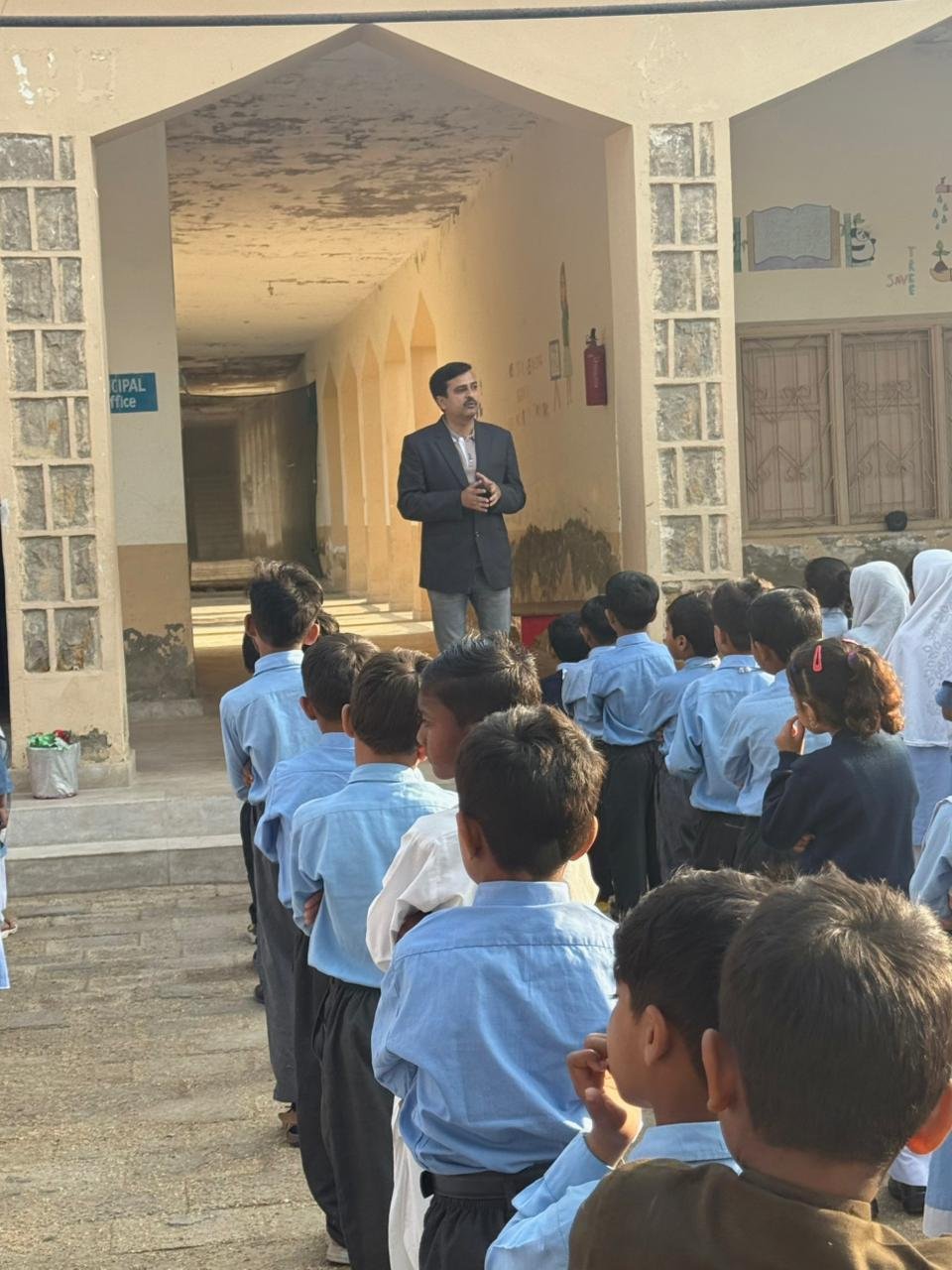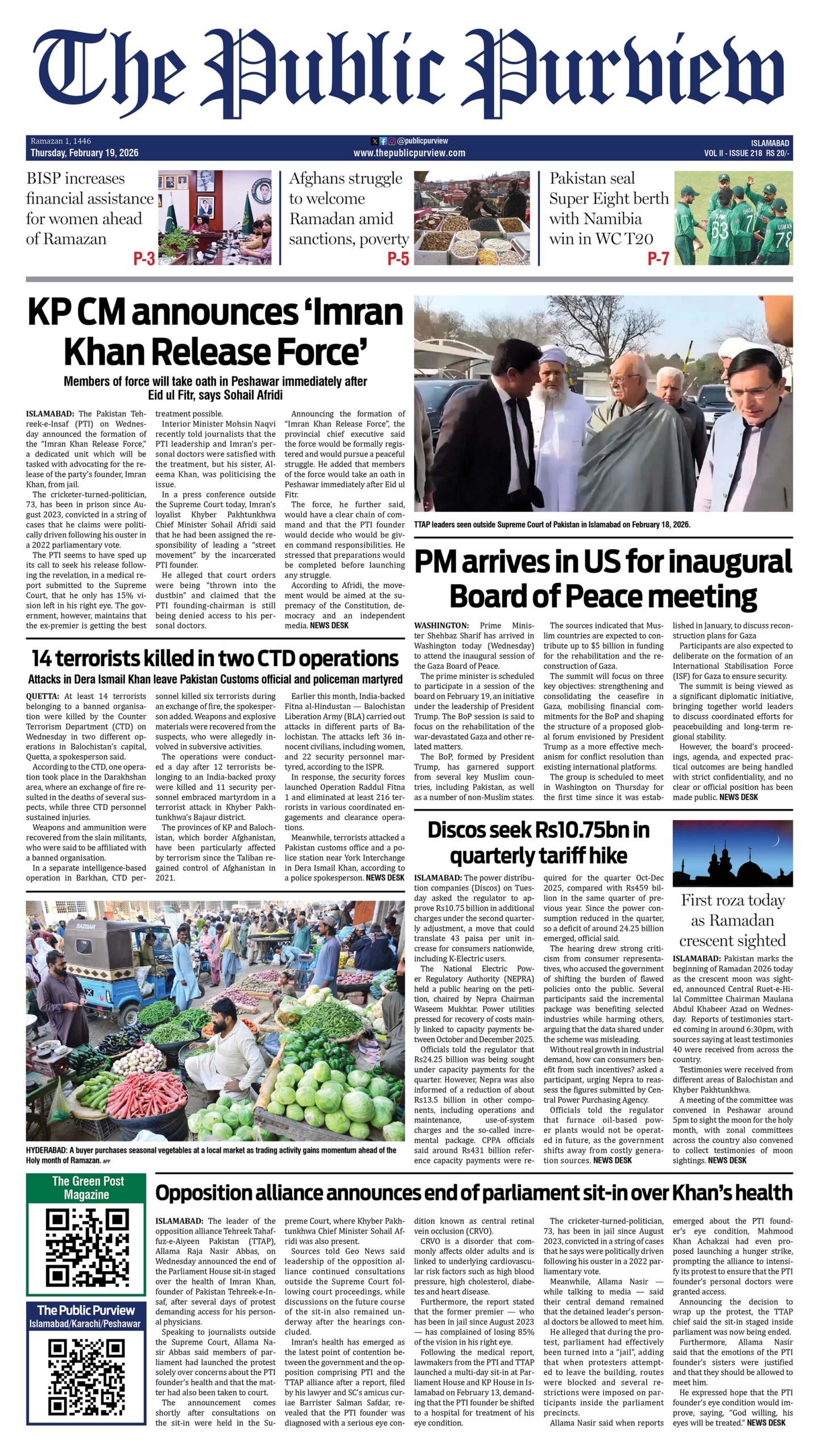By Hameedmashwani3@gmail.com
Water is the foundation of life, the source of growth, and the essence of survival for every living being. Humans, animals, plants, and even microscopic organisms cannot exist without it. The Qur’an reminds us that Allah created all living things from water, highlighting its divine significance, “And We made from water every living thing.”
In Saudi Arabia, a nation dominated by deserts and extreme heat, water is more than just a resource. It is the lifeblood that sustains every aspect of life. Yet, this invaluable blessing faces immense pressure as the Kingdom confronts one of its most critical environmental challenges: water scarcity.
Saudi Arabia’s dependence on water is immediate and complex. The country relies heavily on underground aquifers, which are largely nonrenewable, and on desalination plants that convert seawater into freshwater. Despite these efforts, per capita water consumption remains among the highest in the world. Rapid population growth, urbanisation, industrial expansion, and agricultural demands continuously increase water consumption, placing immense strain on existing resources. In Riyadh alone, millions of residents rely not only on municipal water supply but also on water tankers to meet daily needs. In some cases, water is even more expensive than diesel or petrol, reflecting both its scarcity and immense value.
Saudi Arabia faces significant challenges due to its arid climate, low rainfall, and high evaporation rates. Rainfall is insufficient to naturally replenish aquifers, and much of the groundwater has accumulated over thousands of years, making it essentially nonrenewable. Over extraction threatens not only water availability but also ecological balance. Depleted aquifers can lead to land subsidence, reduced soil moisture, and desertification, further complicating sustainable living in this arid environment.
Desalination, the process of converting seawater into freshwater, has been a key technological response. Saudi Arabia is home to some of the largest desalination plants in the world, producing millions of cubic meters of freshwater daily. Methods such as reverse osmosis, multistage flash distillation, and increasingly solar-powered systems improve efficiency and reduce environmental impact. However, desalination remains energy-intensive, relies heavily on fossil fuels, and produces brine, a concentrated salt byproduct that can harm marine ecosystems if not properly managed. The Kingdom has made strides in addressing these challenges, but the scale of water demand continues to challenge sustainability efforts.
The Saudi Green Initiative reflects the Kingdom’s commitment to tackling environmental and water-related challenges. By planting millions of trees, creating urban green spaces, and restoring desert landscapes, the initiative combats desertification, improves air quality, and enhances ecological resilience. Every tree is irrigated carefully, often multiple times per day, to survive in the harsh desert climate. While this approach supports environmental sustainability, it also increases pressure on limited water resources, underscoring the importance of sustainable irrigation systems and careful monitoring.
Innovative projects like Wadi Namar showcase practical water management solutions. Here, treated water supports both terrestrial and aquatic life, with advanced treatment ensuring safety for plants and fish. Controlled chemical treatments maintain water quality while reducing environmental risks. These initiatives demonstrate that ecological restoration and responsible water use can coexist, though scaling such projects nationwide remains a challenge.
Population growth and urban development continue to amplify water scarcity. Riyadh, with over seven million residents, consumes vast quantities of water for domestic use, landscaping, agriculture, and commercial purposes. As cities expand, pressure on municipal water systems and underground aquifers increases, leading to higher costs, rationing, and potential shortages. This highlights the urgent need for integrated water management strategies that combine scientific innovation, sustainable practices, and ethical stewardship.
Saudi Arabia’s approach to water scarcity must be multi-pronged. Continued investment in desalination technology is critical. Modern reverse osmosis plants, especially solar-powered, reduce energy consumption and environmental impact while providing reliable freshwater. Expanding wastewater treatment and water recycling is equally important. Treated wastewater can supplement irrigation, industry, and aquifer recharge, conserving precious freshwater and supporting sustainable urban and agricultural practices. Public awareness campaigns can further encourage responsible water usage and reduce wastage at both household and industrial levels.
Agriculture, a particularly water-intensive sector, has historically relied on crops like wheat requiring substantial irrigation. Shifting to crops suited to arid climates, adopting drip irrigation, and using soil moisture retention techniques can drastically reduce water use without compromising food security. Modern irrigation technologies, coupled with careful water management policies, offer practical solutions for desert agriculture.
Urban water management also requires modernization. Smart metering, leak detection, real-time monitoring, and optimised distribution networks can reduce losses, ensure equitable access, and prevent overconsumption. Industrial facilities must adopt water-saving technologies and recycling practices to minimize impacts. By integrating policy, technology, and public engagement, Saudi Arabia can create a resilient water management system capable of sustaining both population and environment.
Climate change adds another layer of complexity. Rising temperatures, higher evaporation rates, and shifting rainfall patterns exacerbate scarcity. Extreme heat increases water demand for human consumption and maintaining green spaces. Addressing these challenges requires forward-thinking policies, water-efficient urban design, and investment in sustainable technologies to secure long-term water availability.
Islam provides additional guidance, emphasising ethical and spiritual responsibility in conserving water. Wastefulness is considered sinful, and Prophet Muhammad ﷺ advised careful use even in abundance: “Do not waste water, even if you perform your ablution on the banks of a flowing river.” Ethical consumption, environmental awareness, and sustainable practices are not only scientific necessities but also spiritual imperatives.
Saudi Arabia’s integrated approach demonstrates that science, technology, and faith can work together. Initiatives like the Saudi Green Initiative, urban greening projects, wastewater reuse programs, and advanced desalination plants highlight a commitment to sustainability. Yet, population growth, industrial expansion, and climate change threaten to intensify water stress. Without continued investment in technology, infrastructure, and public education, severe water shortages may loom in the coming decades.
Water scarcity is not merely an environmental problem; it is a social, economic, and ethical issue. Every drop represents life, growth, and divine blessing. By combining scientific knowledge, technological innovation, and Islamic principles of stewardship, the Kingdom can secure its water resources for generations. Responsible management, ethical consumption, and proactive governance are essential to ensure water continues to sustain life, now and in the future.
Saudi Arabia’s experience also offers lessons for other arid nations. A combination of advanced technology, sustainable policy, and cultural respect for water provides a comprehensive blueprint for water security. Addressing urban needs, agricultural efficiency, industrial water use, and environmental protection holistically allows for development without compromising conservation.
Furthermore, wise water management supports broader environmental sustainability. Excessive use contributes to land degradation, reduced soil fertility, and biodiversity loss. Managing water responsibly protects ecosystems, improves air quality, reduces desertification, and enhances quality of life. Planting millions of trees and maintaining urban greenery, while carefully managing irrigation, exemplifies this dual approach.
Future strategies must prioritise innovation in desalination, wastewater recycling, and public awareness. Solar-powered plants, large-scale water treatment, and smart urban infrastructure are key. Policies that promote responsible water use, incentivize water-saving technologies, and integrate environmental education are equally important. Combining science, technology, governance, and Islamic ethics ensures that water, a divine blessing, is preserved and used responsibly.
Ultimately, water scarcity tests both human ingenuity and ethical responsibility. Saudi Arabia demonstrates that it is possible to address water challenges while promoting sustainability, supporting population growth, and respecting the environment. By integrating scientific understanding with spiritual guidance, the Kingdom can create a future where water continues to nourish life, sustain ecosystems, and support prosperity. Every drop carries the potential for growth, life, and blessing, and it is the responsibility of every individual, community, and government to safeguard this precious resource.







 Today's E-Paper
Today's E-Paper